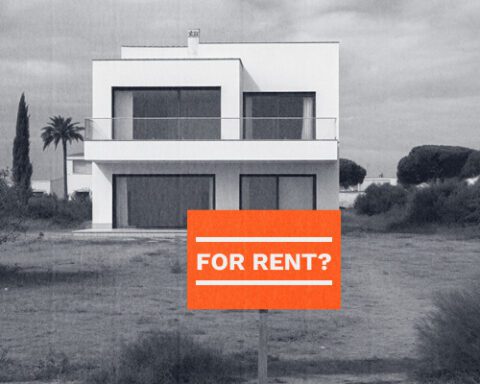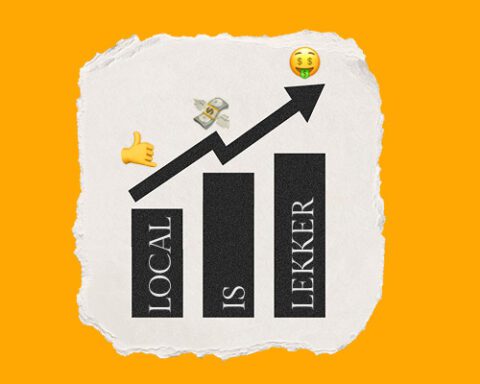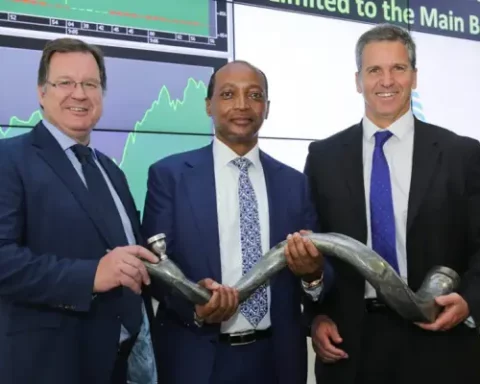If you’re tearing your hair out trying to sell your property anywhere other than the Western Cape, you’re not alone.
South Africa’s largest listed property group, Growthpoint, has been steadily trying to extricate itself from run-down nodes in provinces like Gauteng but, as CEO Norbert Sasse told journalists at a presentation this week: “It’s tough. The target for the financial year to June is [to sell] R2.4bn [of property], so we’ve got another R1.6bn to sell in the next three to four months. If the market were more liquid and fluid we would have sold more than we have.”
As it is, in the six months to end-December, Growthpoint offloaded 12 properties, including two office properties for R589.4m, netting a profit on book value of just R7m.
But it says that despite selling 37 mainly B- and C-grade office assets and properties “deemed high risk or in deteriorating business nodes” for R5.2bn since 2015, the sector “still suffers from an imbalance of supply and demand”.
As for retail, 27 properties that it deemed below the right size or which are in “deteriorating central business districts” have been sold for R3.3bn since 2015.
The one positive is that Growthpoint reckons the office sector has finally hit bottom, given better performance over the past two financial years.
As with all property groups, there’s always a constant toss-up on where to invest capital, and the balance for Growthpoint is about 50% existing assets and 50% new.
Tellingly, though, much of the R1bn it spent in the period – excluding its investments in the V&A Waterfront – was on assets in the Western Cape: the Bayside Mall, Table View and The Hilton Canopy Hotel, as well as Longkloof Studios in Gardens.
An extra R182.6m was spent on developing new logistics warehouses, and that’s starting to pay off: vacancies in the industrial and logistics portfolio have dropped to 3.5%, their lowest since June 2018 and less than half the group’s overall vacancy rate of 8.3% – though those vacancy levels are also at their best levels since June 2019, and down from 8.7% this time a year ago.
For the half, Growthpoint’s dividend per share rose 3.7% to 61c, on a 3.9% rise in distributable income, to 74 c a share.
The number was higher than forecast for analysts at Anchor Capital, and much of the surprise came from an improvement in the group’s South African portfolio.

Increasing rates, decreasing services
On a recent site visit, Growthpoint SA CEO Estienne de Klerk told reporters that while Joburg’s Sandton business district – where Growthpoint is the single largest property owner – has been written off as an office node, “I can promise you it’s not the case. If there’s a 20% vacancy, the other side of the coin is that the buildings are 80% full. So we have reasonably high occupancies in many of these buildings,” he said.
What does make life complicated for listed pure property players is what’s been happening to other businesses, like banks, law firms and asset managers. “They’ve been reducing headcount and costs and they’ve given up quite a lot of space, so they’ve been competing with us in that they’ve been subletting,” De Klerk told reporters.
One example is Sasol, which has been trying to sublet its massive new head office. So the competition isn’t just from real estate players.
While much of the company’s capital spend is going to the Western Cape, Growthpoint clearly isn’t giving up on Gauteng despite the province’s manifest failures.
“If we ever get some economic growth in Gauteng, that market will very quickly absorb vacancies and we’ve started seeing that. Last year, we brought our vacancies down by a third,” said De Klerk.
But, like every other frustrated rate-payer in Gauteng, he said, “we still face the challenges of dealing with the City of Joburg, which is still aggressively increasing their rates and taxes and aggressively reducing their services. That challenge will be one of the most critical for our industry other than economic growth.”
Thank goodness, then for Cape Town’s mighty V&A Waterfront, South Africa’s foremost tourist success, where net property income surged 16.6% during the half, like for like. Hotels at the V&A had an “exceptional” period with occupancies of 67%. Growthpoint owns 50% of the asset and its share of distributable income was 4.5% higher, at R398.2m.
Yet that was a disappointment for Anchor, which had expected growth in income of 8%.
De Klerk explains that the lower-than-expected rise in distributable income is due to the developments on the go at the V&A, which are only likely to really kick in in three years’ time.
Still, Growthpoint’s forecast of a 1% to 3% rise in distributable income per share for the full year – while it doesn’t sound like much – is well ahead of expectations. Ashburton Investments analyst Lesiba Ledwaba says: “The previous guidance for distributable income per share was a decline of between 2% and 5%, therefore the current guidance represents a marked improvement.”
Asked what he makes of the investment case for real estate investment trusts now – after a bumper, but fairly brief run towards the end of 2024, when investors thought interest rates worldwide were set to tumble – De Klerk tells Currency that the puff has gone out of economic growth. “We thought [that] was going to come through, and unfortunately the office market is quite linked to South Africa’s GDP. But if you’re a patient investor and buying at current levels and high yields you will find five years from now that [property stocks] would have been a good buy – and you’re getting the dividend yield before even taking any capital appreciation into account.”
Ashburton is rather more measured, and says: “It’s hard to remain overly bullish, especially after such a strong rally in 2024, but the continued improvement in fundamentals like rental reversions, vacancies and retail trading metrics will likely result in positive earnings revisions and is supportive for share prices.”
Ashburton holds Growthpoint, and especially likes its share in the V&A, while Anchor has a buy recommendation on the stock and a target price of R16 a share. Growthpoint closed at R13.32 on Thursday.
Sign up to Currency’s weekly newsletters to receive your own bulletin of weekday news and weekend treats. Register here.










